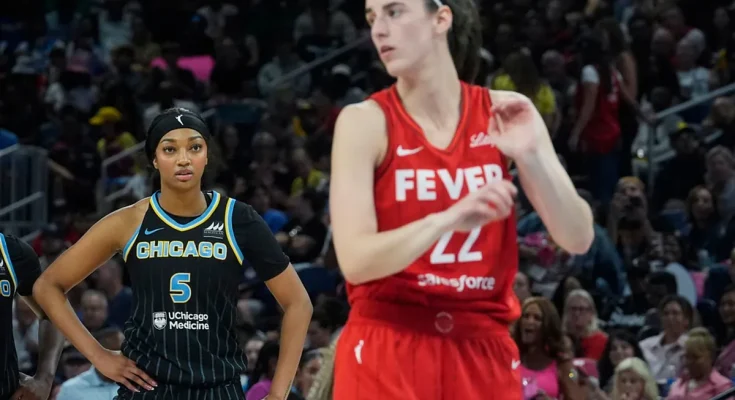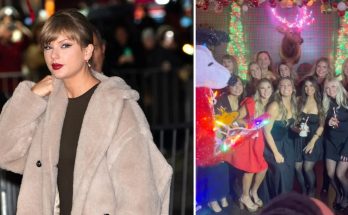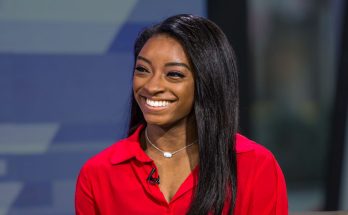WNBA Commissioner Cathy Engelbert is facing backlash from some of her league’s biggest stars after remarks she made regarding the much-talked-about rivalry between college basketball phenoms Caitlin Clark and Angel Reese. What began as a media moment quickly spiraled into a controversy that has ignited heated debates among players and fans alike.
During a recent appearance on CNBC’s “Power Lunch,” Engelbert was asked how the league handles the less savory aspects of the rivalry between Clark and Reese, particularly given the racially charged discourse that has surfaced online. Engelbert acknowledged the negativity but chose to focus primarily on the marketing potential of the rivalry, comparing it to the legendary Magic Johnson-Larry Bird rivalry of 1979.
“You need rivalry,” Engelbert said. “That’s what makes people watch. They don’t want everybody being nice to each other. It’s a balance, but we’re seeing corporate partners stepping up, supporting these athletes in ways they weren’t five years ago.”
While Engelbert may have had good intentions in highlighting the positive attention Reese and Clark have brought to women’s basketball, her comments didn’t land well with many WNBA players, particularly Black athletes, who felt she glossed over the serious issues at play.
Several high-profile players have since voiced their disappointment. Connecticut Sun guard DiJonai Carrington didn’t hold back, saying Engelbert had a golden opportunity to address racism directly but instead sidestepped the issue. “It was eye-opening because of what we’ve experienced this season,” Carrington stated. “Some of it has been pretty sickening, and it should have been called out.”
Breanna Stewart gave her opinion on the comments
New York Liberty star Breanna Stewart echoed Carrington’s sentiment, calling Engelbert’s comments “disappointing,” while three-time WNBA champion Chelsea Gray took it a step further. Gray expressed her frustration at the lack of focus on the majority of WNBA players, who are Black women, feeling that the commissioner downplayed the racial undertones surrounding the rivalry.
“There’s a responsibility when you’re in that position to address things head-on,” Gray noted, suggesting Engelbert missed the mark in addressing the racial component of the conversation. “It’s not enough to brush it aside.”
Engelbert‘s analogy to the Bird-Johnson rivalry has stirred the pot for a different reason, too. While that iconic competition elevated the NBA, some feel that the comparison minimizes the modern-day complexities female athletes-especially Black women-face, both on and off the court. Many believe Engelbert could have taken a stronger stand, condemning the racial attacks that have followed Reese and Clark’s ascension.
The commissioner’s comments have since sparked an intense dialogue within the league, with some questioning if the WNBA is doing enough to protect its players from the harsh realities of the public eye. Although Engelbert emphasized the rivalry’s value to the league’s growth, the conversation has shifted, with players making it clear that issues of race and respect deserve more attention than simple marketing benefits.
It remains to be seen whether Engelbert will issue a further statement to clarify her position, but one thing is certain: the voices of the WNBA’s players are louder than ever. And they’re demanding more from their leadership.



